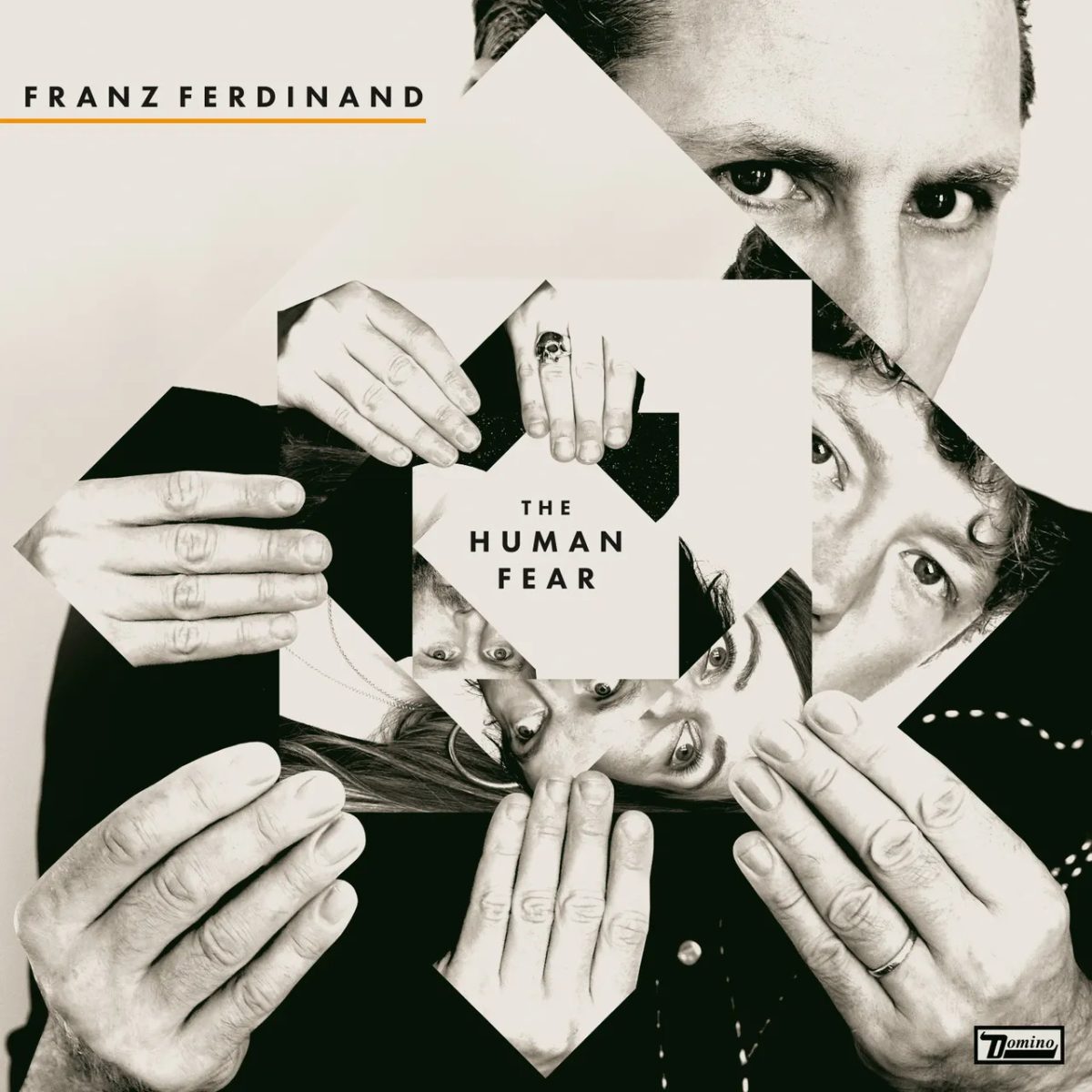The Scottish post-punk band Franz Ferdinand is known for their out-of-the-box artistry, creative hits like “Take Me Out” and impact on the millennial rock sound. Released on Jan. 10, its latest album “The Human Fear” is a musical exploration into what drives fear and the power behind defeating it. It’s also a reminder of the band’s core sound change and the divergence from their former 2000s rock glory.
The band formed in Glasgow, Scotland, in 2002 and took inspiration for its name from a racehorse named “Archduke Ferdinand” after the assassinated Austrian king whose death was a catalyst for World War I. The band, with original members Alex Kapranos, Bob Hardy, Nick McCarthy and Paul Thompson, released a self-titled album in 2004 that helped push the post-punk revival alongside other bands debuting at the time like the Arctic Monkeys.
Their songs had strong basslines, full of repetition and each song played at a delicate balance of modern rock and an homage to punk from the ’80s and ’90s. They accumulated monstrous success with track three off their self-titled album, “Take Me Out,” thanks to a powerful combination of memorable riffs, catchy lyrics and an innovative sound. The song, their second single off “Franz Ferdinand,” reached No. 3 on the UK charts and helped push them towards a future of Grammy nominations.
The band’s sound has shifted significantly since their titular album. What was once an indie-punk band is now producing electronic, dance-oriented beats that are accompanied by synth and slow rhythmic guitar movements. The band’s new sound isn’t necessarily bad — the songs are interesting to listen to and creative, but it’s certainly a shock for those going to “The Human Fear” directly from their earlier work. Alex Kapranos, the band’s lead vocalist since its formation, spoke to Apple Music’s Hanuman Welch about the album’s inspiration, fear and the power it holds.
“I think we all have fears within us and fears that we confront in our life at different times … and how we react to those fears is how we earn who we really are,” Kapranos said.
I’d like to believe “The Human Fear” was an attempt at returning to Franz Ferdinand’s old sound, one of funky transitions and originality. If this was the goal of “The Human Fear,” it’s a partial success. “Black Eyelashes” took the banner for me as the most creative listen on the album, with punk-polka influences similar to those of Lemon Bucket Orkestra and other modern folk artists. “Audacious,” the album’s first track, reminded me of the Electric Light Orchestra’s “Mr. Blue Sky” in its rhythm and The Strokes’ “The Adults Are Talking” in its lyrics and vocals.
These influences aren’t surprising, considering the three bands were dominant in the alternate rock scene of the early 2000s. I appreciated “Build It Up” with its repetition in the chorus alongside the Halloween-esque sound thanks to the auxiliary percussion. “The Birds” was a solid end to the album and helped reaffirm the sound that the band put forth on this album, with an extra dosage of punk.
Outside of these select few, the album really didn’t do anything for me. I’m struggling to relate the level of creativity and originality from the old Franz Ferdinand with the new. Part of the problem is obvious — the band is an almost entirely different group of people, a result of a slow exodus of original band members over the years. It’s as if Dave Grohl kept Nirvana’s name but played with the current Foo Fighters.
It’s the same genre and the same name, but the core of the band is completely different. With the original Franz Ferdinand, listeners could hear the ragtag Scottish group doing a mix of old styles with an indie, scrappy vibe consistent with the 2000s alternative scene. The new Franz Ferdinand is more electronic, percussive and closer to the mainstream. While not bad, they aren’t the Franz Ferdinand of the 2000s. I think Franz Ferdinand redefined their sound, and those looking to listen should investigate their 2018 album “Always Ascending” to gain a stronger perspective of their current instrumentation and artistic track.
Outside of the large differences between the past and the present, most of the songs weren’t standouts. “Everydaydreamer,” “Cats” and “Night or Day” were good stylistically, but not particularly memorable. They all had similar funk and breaks in the songs, with whimsical auxiliary percussion sliding and whistling about in the background. Still, the lyrics of all the songs are high-quality and interesting, which shouldn’t be surprising considering Alex Kapranos’ role as lead vocalist and contributing songwriter.
I think that for those who are interested in Franz Ferdinand’s new works and enjoy the recent music the band has put out, this album is perfect. It’s slightly electronic, fanciful and weird, appropriate for the path the band is going down. But if you’re looking for the Franz Ferdinand of “Take Me Out” fame, this album may not satisfy your Scottish post-punk band itch.


